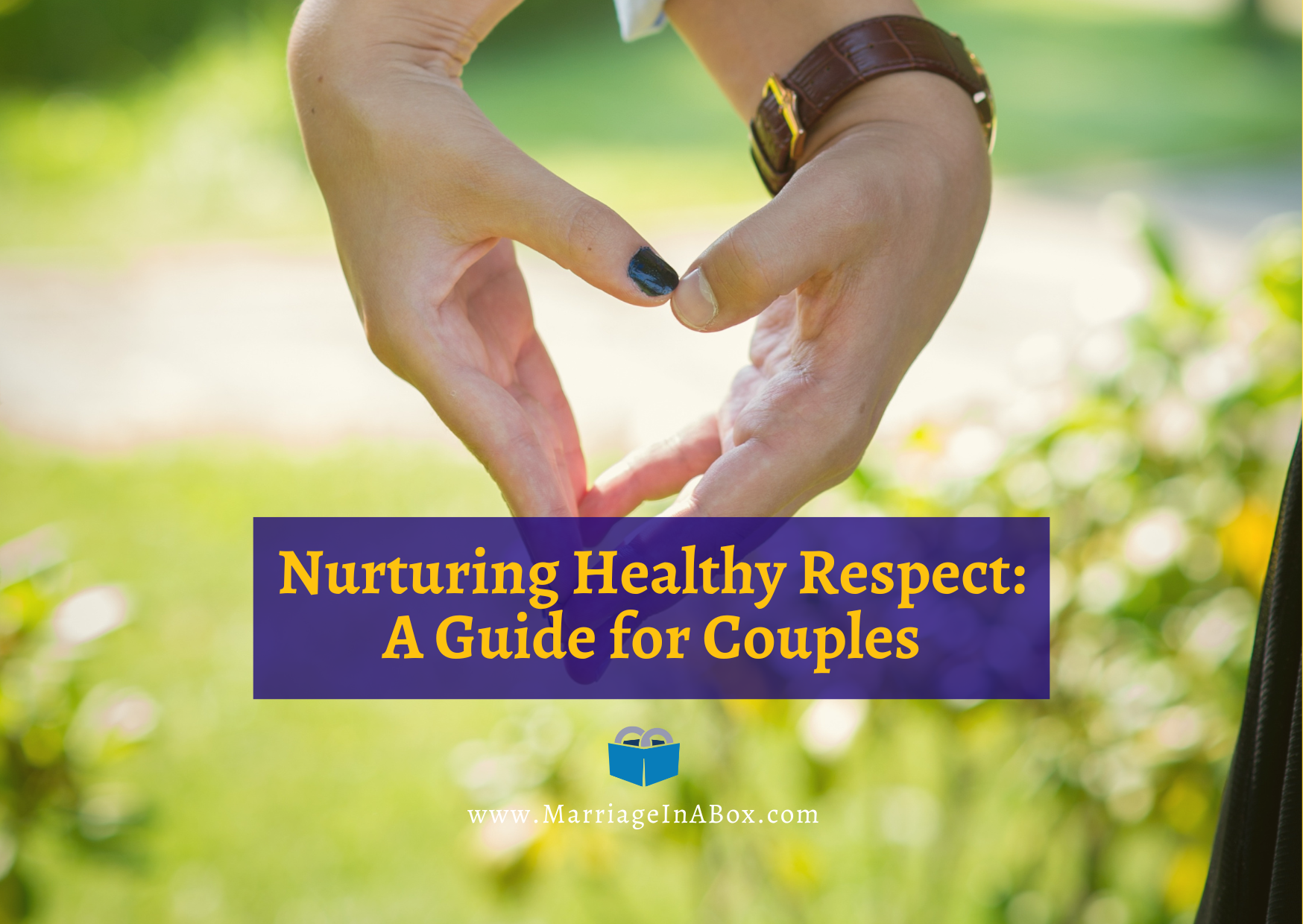Nurturing Healthy Respect: A Guide for Couples
Posted on

Importance of Respect in Marriage
Respecting each other's opinions and feelings is essential.
- Mutual respect diminishes the fear of being different.
In marriage, you come to the relationship as individuals. Both partners have personality traits, talents, quirks, past experiences, and interests that differ. Showing mutual respect demonstrates appreciation for each other, differences, and all. Find ways to appreciate your spouse and their unique qualities daily. Declare your spouse's value in your actions.
- Mutual respect gives strength to uphold healthy boundaries in the relationship. Find ways to appreciate your spouse's differences and show that appreciation daily. Declare your spouse's value in your actions.
- Mutual respect compels you to remember you are on the same team when you have disagreements.
- Mutual respect will help to strengthen the friendship between you and your spouse. Showing mutual respect allows friendship to grow because it takes the fear of vulnerability out of the picture. To learn and grow from conflict experiences, you must set explicit expectations for how you will communicate, collaborate, and resolve issues. Listening actively and empathetically and asking open-ended questions are good communication techniques.
How respect enhances communication and emotional connection
The power of respect and love lies in the fact that they always motivate partners to give their best to each other because it boosts the sense of worth whereby the husband feels important, and the wife feels loved.
Recognizing Red Flags
One way to improve your marriage is understanding what happens when relationships fail.
The following are signs of disrespect and unhealthy dynamics. Inability to control emotions. Avoid using controlling behaviors and manipulation. Not addressing issues early on. Timely communication with each other.
Understanding Healthy Respect
Definition of healthy respect in a marriage
Healthy relationships display mutual respect through positive skills, such as listening to your partner's feelings, honoring their boundaries, supporting their dreams, and speaking kindly to others about them. Respecting someone means holding them in high regard through your actions, behaviors, and words. Tolerance differs from respect in that it implies accepting each other's differences.
Build a Foundation of Mutual Respect
Emotional health improves when we understand and tend to our emotional needs. We can actively pursue emotional health by addressing bitterness, unforgiveness, blame, pride, and control. Here are some common strategies.
Seek to understand the problem without attacking. Seek common ground. Use open and honest communication. Expressing thoughts and feelings without judgment and being willing to adapt. Give empathy and understanding. Acknowledge each other's perspectives. Set healthy boundaries.
Foster Respectful Conflict
There can be learning and growth from conflict experiences; you must set explicit norms and expectations for communicating, collaborating, and resolving issues. For example, respecting each other's opinions and feelings is essential, listening actively and empathetically, asking open-ended questions, and seeking to understand the problem without attacking the person. Additionally, it is beneficial to seek common ground and mutual benefit while being willing to compromise and adapt more effectively to resolve issues.
Avoid Destructive Behaviors
To avoid destructive communication and conflict patterns, you must replace them with healthy, productive ones. Examples of destructive behaviors are name-calling, blaming, shaming, criticism, contempt, stonewalling or withdrawing, and defensiveness. Use constructive communication when expressing feelings and needs during disagreements with "I" statements.
Seek professional help when needed.
Support Each Other's Growth
Mental health affects relationships significantly. Working to check our thoughts and unpack our baggage gives us healthier emotions that benefit our relationship with our husband or wife. The marriage benefits are that conflict decreases; communication improves, and joy and intimacy increase. Physical health and well-being affect our relationships with our partners. We must feed, move, hydrate, care for, and rest our bodies to stay in shape.
Identifying and supporting each other's goals helps, especially if it comes from a spouse. Here are some tips to encourage your partner in their life goals and dreams.
- Celebrate achievements together.
- Provide emotional support.
- Offer encouragement and reassurance.
- Adapt to life's transitions as a team.
Embrace personal and relational growth.
Here are some tips for building trust and deepening intimacy.
- Practice open, honest, and transparent communication and create a safe space for sharing.
- Spend quality time together.
- Show appreciation and support each other's goals and dreams.
- Respect individual boundaries and space.
- Make time for romance and intimacy.
- Address past mistakes and work toward forgiveness.
A lack of respect for your partner leaves marriage without part of its foundation, harms our marriages, and hinders connecting genuinely. There is great potential for stronger marriages when partners build mutual respect. Marriage in a Box can offer helpful suggestions to guide you through this process.
Marriage In a Box provides access to tools and techniques professionals use for relationship issues. You can set goals, earn rewards, and find marriage coaching on the site. Check out the available kit and sources of information online.
Download Our Worksheet And Discover Your Top Relational Desires!